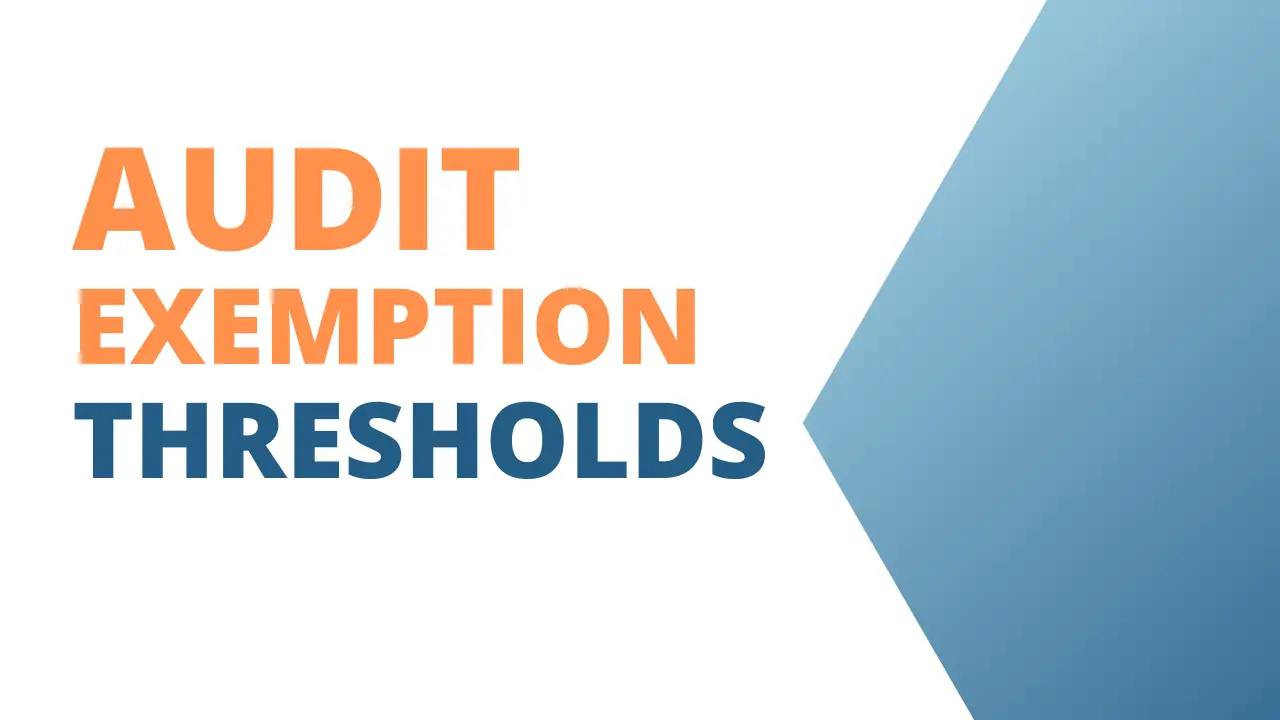Nobody likes being audited; an audit can suck up a lot of your company’s resources in terms of taking up the time of key personnel and far higher fees compared to preparing an unaudited set of financial statements.
Thankfully, many smaller Irish private limited companies can avail of audit exemptions. In this blog post, we will clearly explain what companies in Ireland can avail of these exemptions and who cannot.
Small Company Audit Exemption
By your company availing of the small company audit exemption, you’ll be greatly reducing the administrative burden on your business.
Your company must meet two or more of the following conditions to qualify:
- Balance Sheet total does not exceed €6 million.
- Turnover does not exceed €12 million
- The number of employees does not exceed 50
Along with the exemption of filing an auditors’ report, the company may also file abridged statements with far less information being made available to the public.
Dormant Company Audit Exemption
Many companies that have just been incorporate but have yet to start trading will be able to claim the dormant company audit exemption. The Dormant Company Audit Exemption is not specific to company size. A company can qualify to claim audit exemption based on the fact that it is dormant.
When determining if a company is dormant or not, directors can exclude any of the following transactions to do with cost relating to setting up a company:
- Any transaction arising from the taking of shares in the company by a subscriber to the constitution.
- CRO fees relating to registering a company name, reregistering a company, filing an annual return.
Are there different rules for group companies?
You can still claim an audit exemption for a small group company if the group as a whole is below certain thresholds:
- The balance sheet total of the holding company and subsidiaries taken as a whole does not exceed €6m net (or €7.2m gross).
- The amount of turnover of the holding company and subsidiaries taken as a whole does not exceed €12m net (or €14.4m gross).
- The average number of persons employed by the holding company and its subsidiaries does not exceed 50.
The conditions must be met in the current year and also in the preceding year (if applicable).
Can you lose your audit exemption?
If you want to to keep you audit exemptions, it is vital that you do not miss your companies annual reporting deadlines. If a company’s annual return for the previous year was not filed on time, the company cannot avail of the audit exemption.
Failure to file on time in the current year will result in the company losing audit exemption for the next two years.
Companies not entitled to claim the small company/ dormant company audit exemptions
The following companies will not be entitled to claim either the small company audit exemption or the dormant company audit exemption:
- Public Limited Companies
- Public Unlimited Companies
- Investment Companies
- A credit institution or insurance undertaking
- A company referred to in the Fifth Schedule to the 2014 Act
Should you still get audited even if your company is exempt?
Is it worth having your financial statements audited if the company is eligible to avail of an audit exemption? There are some instances where this may be the case.
You will not always have a situation where both the shareholders of the company and the directors that are responsible for the day-to-day management of the business are the same people.
From a governance point of view, an audit can give shareholder far more comfort that the management team are running the business in a compliant manner and that the controls in place to protect the shareholder’s interests are robust.
Is the company looking to get a substantial loan from the bank? Or be sold in the near future? There may be third parties that will want to have your books and records audited for their own comfort,
Disclaimer: This blog post is for informational and educational purposes only and should not be construed as financial advice.







